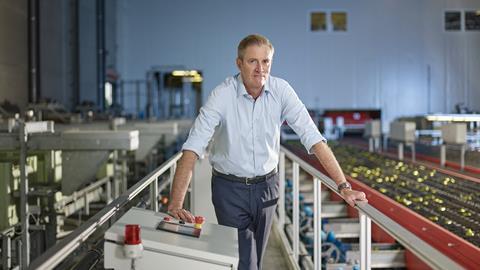Belgian Fruit Valley predicts a strong pear crop this season amid shifting climatic, logistical and market challenges, with its region’s stable production providing confidence to both growers and customers

Belgium’s leading pear exporter Belgian Fruit Valley is forecasting a “much better crop” this season, thanks to favourable growing conditions and a recovery from previous weather-related setbacks. Marc Evrard, Belgian Fruit Valley’s commercial director, said the early outlook for Belgian Conference pears was “very promising” – but warned that logistical and climatic headwinds continue to challenge the sector.
“Generally speaking, last season – and this is a worldwide tendency – we saw consumption of pears go down, as global production fell and prices rose,” says Evrard. “But this didn’t really affect the growers, who got a very good return on what they had.”
For the upcoming season, production in Europe is up, with a recovery in Spain and Italy. “Belgium is looking at around 400,000 tonnes of production,” he says. “It’s been hot. But the fruit is already quite advanced and is well shaded. We didn’t have too much rain over the last two or three months, but we had ample rain before that.”
With harvesting expected to begin around 18 August – roughly a week earlier than 2024 – Belgian Fruit Valley is optimistic. “Skin quality looks good, and with the right balance between warmth and water, we’re expecting very good eating quality and texture,” Evrard said. “It’s shaping up to be a really solid season. Because of the larger crop in Europe, we’ll see more affordable prices for customers worldwide, but with enough value left for our growers.”
Along with the Netherlands, Belgium is becoming the major pear growing area in Europe, not least due to the region’s stability. “Of course, we are being plagued by several things, including the emptying of the toolbox that growers can use to protect their plants – this is happening almost everywhere in Europe – but the impact is greater for southern European producers,” says Evrard.
Climate change is creating additional challenges for pear growers in the south, he says. “Rewind a year or two, and we see that if we have rain here, then they have floods in the south. If it doesn’t rain for a bit here, they have a drought. With hotter weather and more humidity, things like fire blight also become omnipresent, like in Spain and Portugal, whereas it’s almost non-existent over here. A pear tree needs enough cold hours in the wintertime in order to be able to produce enough fruit, and that has been lacking over the last two seasons in places like Portugal.”
On the export side, Belgian Fruit Valley faces continued headaches, including shipping disruptions – delays, congestion, shortages of containers are now commonplace. “Shipping lines often make decisions based purely on cost,” he said. “If delaying or rerouting a vessel saves them significant sums, they’ll do it, even if it causes severe delays for perishable products.”
Despite this challenge, Evrard insisted that Belgian Fruit Valley remains committed to overseas markets, even amid global economic uncertainty. “We’re not retreating from exports,” he says. “Every market matters – Europe, Asia, Latin America. We just have to be smarter. You need to pick your battles, remain audacious, but avoid being too confident.”



